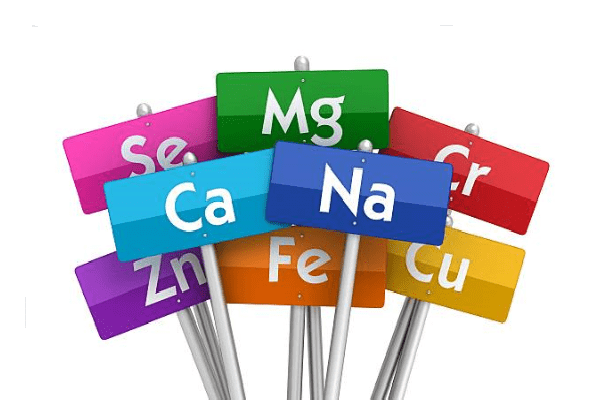Vitamins and minerals >>>> Trace elements
Trace elements.

All processes taking place in the human body are called biochemical for a reason. Being a representative of the organic world, man constantly borrows from nature elements of inorganic origin. Some of these elements come with the inhaled air in the form of a gas mixture (oxygen, nitrogen, hydrogen, carbon), some are absorbed in the form of various chemical compounds during food and water intake (calcium, potassium, magnesium, sodium, sulfur, phosphorus, chlorine, bromine , iron, copper, zinc, iodine, cobalt, manganese, molybdenum, selenium, fluorine, chromium and others). These elements take part in redox reactions in the form of catalysts, inhibitors, in the form of electron carriers, carriers of various chemical groups, etc. All enzymatic activity of the body is based on participation of trace elements in chemical reactions. The exact purpose of many of them has been determined, but there are a number of elements whose presence in the body is necessary, although their role in metabolic processes is still being studied.
The above elements are necessary for the body in different quantities: some are needed in micro doses - micrograms (mcg), where the name trace elements came from , the number of others is calculated in milligrams (mg), they are called macronutrients. To understand the number of daily doses, let's compare these units of measurement with grams: 1 gram (g) = 1000 milligrams (mg); 1 gram = 1,000,000 micrograms (mcg).
As in cases of hypovitaminosis, a person may develop deficiency states associated with impaired absorption of microelements (macronutrients) in the gastrointestinal tract, or their insufficient amount in food and water, giving rise to severe diseases.
These deficiency states manifest themselves in the form of symptoms such as:
- Convulsions
- Gastrointestinal Disorders
- Heart rhythm disorders
- CNS dysfunctions
- Disorders of the growth process of the body
- Bone deformities, decrease in bone mass
- Demineralization of bone tissue and teeth
- Muscular dystrophy
- Anemias
There are areas where the content of useful chemical elements in water or soil deviates from the norm. In such cases, it is necessary to carry out compulsory measures, for example, for fluoridation (or defluorination), iodization of water, or for mineralization of water and soil. Excess or deficiency of trace elements (macronutrients) in water and food leads to disruption of biochemical processes and the development of endemic diseases: dental fluorosis with excessive fluoride in water, goiter with a lack of iodine, various types of caries, increased tooth wear with a lack of calcium and fluoride.
An excess of macro- and microelements can also cause serious damage to the body, occurring in the form of intoxication.
The pharmaceutical industry produces macronutrients and trace elements in the form of mineral complexes or individual preparations with increased doses of trace elements and macronutrients. Such complexes serve as an addition to the main diet and play both therapeutic and preventive roles in the development of many diseases associated with a deficiency of trace elements and macronutrients.

Read

Read



























